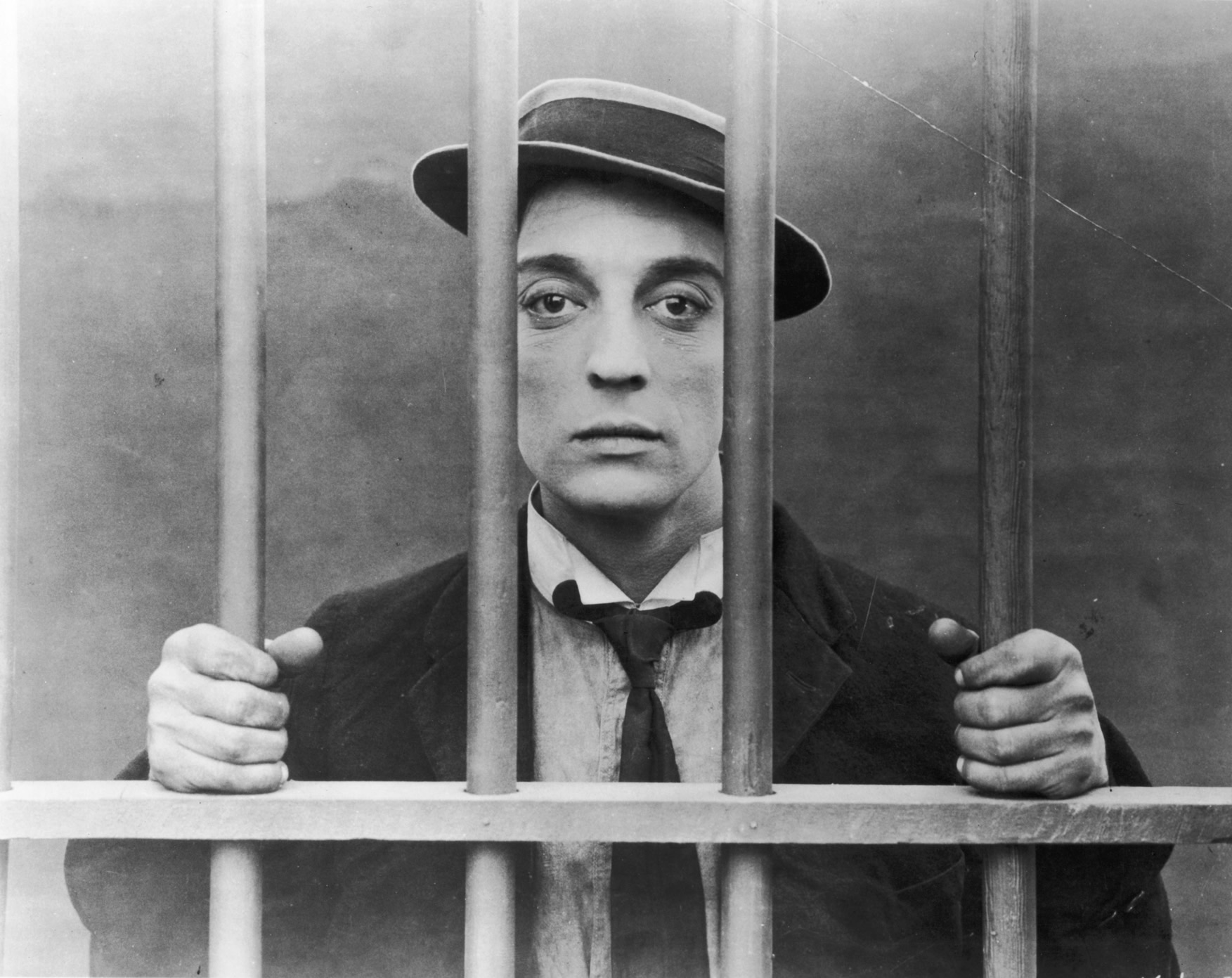Best Comedy Short?
Is Cops (1922) the best comedy short of all time? You can certainly make a case that it is. Film buffs split on whether Chaplin or Keaton is the king of comedy, so Chaplin fans might choose one of his Mutual comedies as the best short. Even so, I don’t know of any other short that’s as superbly inventive and frenetically paced.
Cops is darker in tone than the other great silent comedies. Comedy often takes the premise that if anything can go wrong, it will go wrong. Think of TV situation comedies where a mistaken identity, or an attempt to fool someone into thinking you’re something you’re not, is the basis for many of the plots. Cops began production just as Keaton’s friend Roscoe “Fatty” Arbuckle was facing a third trial. Perhaps for that reason, it’s darker, faster paced, and concerned with weightier issues, such as loneliness and the inevitability of death. As grim as that sounds, this is easily one of the funniest films ever made, and a real crowd pleaser for audiences who haven’t been exposed to silent comedy. Apparently, hopelessness can be extremely funny — as long as it’s happening to some other guy.
This film straddles two styles of comedy: the traditional slapstick comedy that’s mostly rough-and-tumble and a newer cerebral comedy that’s more ironic and self-aware. This hybrid form was ideally suited to Keaton’s character and comic approach. Full of carefully choreographed chases involving hundreds of pursuing policemen, Cops recalls the early Keystone comedies. No one could run as fast or as gracefully as Keaton, and there’s a keen joy in watching him run in high gear, while magically seeming to be suspended motionless in the air. The French gave Buster the nickname of “zero,” in part because his character and films reduce comedy to the bare essentials. If Kafka had written a true comedy (some argue his books are meant to be dark comedies), it might resemble a Keaton film, where Buster is pitted against the universe. Sometimes he wins; sometimes the universe wins.
Keaton and Chaplin films are profound in ways we don’t always expect. Keaton’s films provide lessons about our relationship to the universe, while Chaplin’s films provide lessons about our relationships with each other. That’s why it’s surprising to discover how dependent both filmmakers were on chance elements. In Rudi Blesh’s biography Keaton, Buster talked about the horse that pulled his wagon in Cops:
Onyx was my costar. Bruckman, for some cockeyed reason, named him Onyx. I can’t recall why we didn’t rent a horse. Anyway we bought this old-timer. There was a scene — before we stumble into the parade — where Onyx slows down and can’t pull the heavy load of furniture any longer. I’m to unharness him and lead him out from the shafts. Then it’s to cut and show me, bit in mouth, between the shafts pulling the wagon. Then pan back and show Onyx up in the wagon riding. It was a good idea except that Onyx wouldn’t go along with it. We wasted a day trying to get him up in that wagon. He wouldn’t walk up the ramp, refused to be hoisted in a veterinarian’s bellyband, snorted and kicked whenever we came near. We finally gave up and shot the scene with me pulling the wagon alongside of the horse. Not as good a gag, but it had to do. That finished the Saturday shooting. Monday morning we saw the reason for it all. Onyx had a brand-new colt standing by her when we came to the studio. Her, I said. Bruckman was just opening his mouth to say something. I could feel the word forming in his mind. I beat him to it. ‘The baby’s name,’ I said, ‘is Onyxpected!’
Cops concludes with the usual title card that reads, “The End.” Only this time, the words are carved into a tombstone with Keaton’s porkpie hat casually placed on top. If the film is a musing on how fate usually wins in the end, this would be the final irony. In the end, it really doesn’t matter — from our perspective — whether the hero gets the girl. The end result will be same. Only Keaton could conclude with such a morbid comment and still warrant a smile.
Cops
(1922; directed by Edward F. Cline and Buster Keaton)
Kino International (Blu-ray and DVD)
Sunday, October 2 at 9:30 p.m. eastern on Turner Classic Movies
Reviews